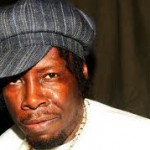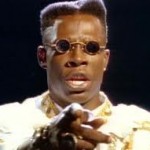By Howard Campbell—

THERE are many contenders for the coveted King of Dancehall title: Yellowman, Beenie Man, Ninjaman, Shabba Ranks.
In terms of style and bravado, Shabba Ranks has no equal. In the early 1990’s, he led dancehall’s march up the Billboard pop charts and onto the Grammy stage.
The mainstream media in the United States got an up-close-and personal look at Jamaican dancehall through Shabba Ranks: his elaborate costumes courtesy of Biggie, unfiltered dialect, and in-your-face ‘slackness’.
Mr Loverman, Housecall (with Maxi Priest), Trailer Load A Girls and Ting-A-Ling announced Shabba’s explosive entry on the world stage. They earned him successive Best Reggae Album Grammy awards for As Raw As Ever and Xtra Naked, the first deejay to win music’s biggest prize.
Before he went international, Shabba ran the Jamaican dancehall through a flurry of hit songs ( Dem Bow, Wicked inna Bed, Caan Dun and Best Babyfather) from his hometown, Waterhouse. Most of his early hardcore hits were done for that Kingston community’s top producers, King Jammy’s and Bobby Digital.
Later, Shabba moved on to more commercial work with Gussie Clarke which included Champion Lover and Pirate’s Anthem.
His Grammy-winning albums for Sony International won him hip hop fans and admirers like Eddie Murphy, with whom he did a song ( I Was A King).

That success set the pace for acts like Mad Cobra, Patra, Shaggy, Beenie Man and Sean Paul.
For his contribution to Jamaican music, Rexton “Shabba Ranks” Gordon was awarded the Order of Distinction by the Jamaican government last year.



You must log in to post a comment.